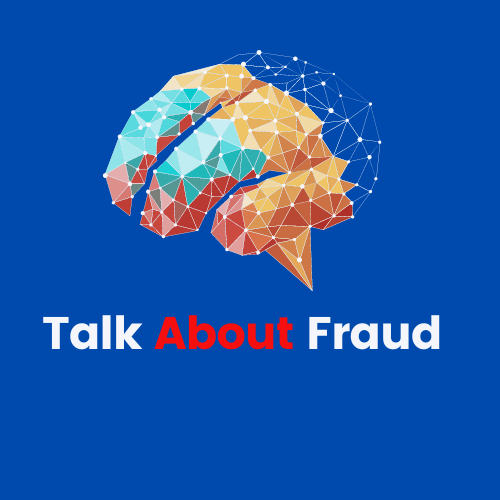
The elderly are at risk for elder fraud and abuse! As our society evolves and technology advances, so do the methods used by fraudsters to commit elder fraud and abuse. Among these, the elderly are particularly at risk. Elder fraud encompasses a wide range of scams and deceptive practices aimed at exploiting the trust, often coupled with limited understanding of modern technology, making them prime targets for exploitation. In this article, we’ll delve into the various forms of elder fraud, both IT-related and non-IT examples, and explore strategies to protect our seniors from falling victim to these schemes.
Protecting Our Elders: Understanding the Risks of Elder Fraud and Abuse
IT-Related Elder Fraud
The rapid integration of technology into our daily lives has opened new avenues for exploitation, especially for those unfamiliar with its intricacies. Elderly individuals, who may not be as tech-savvy as younger generations, are often targeted through various digital platforms. Here are some common IT-related elder fraud examples:
1. Phishing Scams: Fraudsters often send deceptive emails or messages disguised as legitimate institutions, enticing recipients to click on malicious links or provide personal information. For the elderly, distinguishing between genuine and fraudulent emails can be challenging, making them easy prey for phishing attacks.
2. Tech Support Scams: Elderly individuals may receive unsolicited calls or pop-up messages claiming to be from tech support, alleging issues with their computers or devices. These scammers then gain remote access to the victim’s device, stealing sensitive information or installing malware.
3. Online Shopping Fraud: With the convenience of online shopping, seniors may unknowingly fall victim to fraudulent websites selling counterfeit products or services. These websites often mimic legitimate retailers, tricking unsuspecting elders into making purchases with no intention of delivering the promised goods.
Non-IT Elder Fraud
While technology plays a significant role in modern scams, non-IT methods of elder fraud are equally prevalent. These schemes often exploit social dynamics and vulnerabilities unique to older individuals. Here are some examples:
1. Grandparent Scams: Fraudsters impersonate grandchildren or other relatives in distress, claiming they need immediate financial assistance due to emergencies such as accidents or legal troubles. The emotional urgency of these situations can cloud judgment, leading seniors to wire money to scammers posing as family members.
2. Investment Fraud: Elderly individuals may be targeted with fraudulent investment opportunities promising high returns with low risk. Scammers exploit retirees’ desire to secure their financial futures, convincing them to invest in nonexistent or illegitimate ventures, ultimately resulting in significant financial losses.
3. Sweepstakes and Lottery Scams: Seniors are often bombarded with letters, phone calls, or emails claiming they’ve won a prize in a sweepstakes or lottery. To claim their winnings, victims are asked to pay taxes or processing fees upfront. However, the promised prize never materializes, leaving the elder out of pocket and disappointed.
Protecting Our Elders
Given the prevalence of elder fraud, it’s crucial to implement strategies to protect our senior citizens from falling victim to these schemes. Here are some proactive measures:
1. Education and Awareness: Providing seniors with information about common scams and warning signs can empower them to recognize and avoid fraudulent schemes. Workshops, seminars, and educational materials tailored to older adults can help raise awareness about the tactics used by scammers.
2. Communication and Support: Encouraging open communication between seniors and their families or caregivers can create a support network for discussing financial matters and potential scams. Establishing a trusted point of contact for verifying suspicious requests can help seniors feel more confident in navigating unfamiliar situations.
3. Security Measures: Implementing security measures such as caller ID, spam filters, and antivirus software can help protect against phishing emails, fraudulent calls, and malware infections. Additionally, enabling multi-factor authentication and regularly updating passwords can enhance the security of online accounts and devices.
4. Vigilance and Skepticism: Encouraging seniors to adopt a healthy level of skepticism when approached with unsolicited offers or requests for personal information can help prevent them from falling prey to scams. Reminding them to take their time and verify the legitimacy of unfamiliar contacts or requests can prevent impulsive decisions.
In conclusion, elder fraud poses a significant threat to the well-being and financial security of our elderly population. By understanding the various forms of fraud targeting seniors, implementing proactive measures to protect against exploitation, and fostering a supportive environment for communication and education, we can work together to safeguard our elders from falling victim to fraudulent schemes. It’s essential to prioritize the protection and well-being of our senior citizens, ensuring they can age with dignity and security in an increasingly digital world.
A great book about this topic can be found on Amazon: https://www.amazon.com/Fleecing-Grandma-Grandpa-Protecting-against/dp/0275981797.
If you are a victim or know someone who is, contact the USPS invetigative services here.


I’m so in love with this. You did a great job!!
Thank you! I hope you found it useful!
You are so interesting! I don’t believe I have read through anything like that before. So nice to discover another person with unique thoughts on this issue. Seriously.. thanks for starting this up. This web site is something that is needed on the internet, someone with some originality!
Thank you a bunch for sharing this with all people you actually know what you are talking about! Bookmarked. Please additionally consult with my site =). We could have a hyperlink alternate arrangement among us!
I must show thanks to the writer for rescuing me from such a trouble. Just after surfing through the search engines and coming across strategies which are not pleasant, I thought my entire life was over. Being alive minus the answers to the difficulties you’ve fixed all through this blog post is a serious case, and the kind that might have adversely affected my career if I hadn’t noticed your web page. Your mastery and kindness in dealing with all the pieces was important. I’m not sure what I would’ve done if I hadn’t encountered such a step like this. I am able to at this moment relish my future. Thanks so much for this specialized and results-oriented help. I won’t be reluctant to suggest your web blog to any person who will need direction on this matter.
I have been browsing on-line greater than three hours nowadays, yet I never discovered any interesting article like yours. It is pretty value sufficient for me. Personally, if all site owners and bloggers made excellent content as you did, the internet will probably be much more useful than ever before.
I have been checking out many of your articles and it’s nice stuff. I will surely bookmark your website.
Oh my goodness! an incredible article dude. Thanks Nevertheless I’m experiencing subject with ur rss . Don’t know why Unable to subscribe to it. Is there anybody getting similar rss problem? Anyone who is aware of kindly respond. Thnkx
Hi, I think your site might be having browser compatibility issues. When I look at your website in Safari, it looks fine but when opening in Internet Explorer, it has some overlapping. I just wanted to give you a quick heads up! Other then that, fantastic blog!
I want to show some appreciation to this writer for bailing me out of this problem. After surfing around throughout the internet and meeting opinions which were not helpful, I believed my life was gone. Existing without the strategies to the difficulties you have sorted out through your post is a serious case, and the ones that might have adversely affected my entire career if I had not noticed the website. Your competence and kindness in taking care of all the things was tremendous. I am not sure what I would have done if I had not encountered such a subject like this. I can at this point look forward to my future. Thanks very much for this professional and result oriented help. I won’t think twice to refer your site to anyone who will need tips about this situation.
Somebody essentially help to make seriously articles I would state. This is the very first time I frequented your website page and thus far? I surprised with the research you made to create this particular publish amazing. Fantastic job!
A must-read! This article was packed with relevant and practical info.
Great goods from you, man. I’ve understand your stuff previous to and you are just too magnificent. I actually like what you have acquired here, really like what you are stating and the way in which you say it. You make it entertaining and you still take care of to keep it sensible. I can not wait to read far more from you. This is actually a tremendous website.